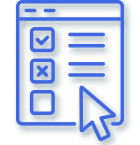What does an Addiction Counselor in West Virginia do? What is Their Job Role?
If your goal is to become a substance abuse counselor in West Virginia you've made a great choice. Although the median annual wage for counselors in West Virginia is lower than the national average, the state also enjoys a lower cost of living which makes the salary comparison about even. According to the Bureau of Labor Statistics (BLS), careers in West Virginia counseling are projected to grow by 16 percent over the next decade, which is much higher than the national average for all occupations.
One of the reasons for the spike in substance abuse counseling jobs is the skyrocketing death rates attributed to addiction. The CDC reports West Virginia as having the highest per-capita rate of deaths due to drugs with more people dying due to drug-related incidents than auto accidents. Because of these staggering statistics it is likely the need for substance abuse counselors will rise even more as the state scrambles to meet the needs of those addicted to both illicit and prescription drugs.
Over half of substance abuse counselors in West Virginia hold a master's degree or higher, so you should make that your ultimate educational goal. Because licensure requires a combination of work and educational experience you can begin your career while completing your studies and advance at a steady pace.
Compare Popular Online Substance Abuse Counseling Programs
Overview
Substance abuse counselor licensure in the state is overseen by the West Virginia Certification Board for Addiction and Prevention Professionals (WVCBAPP). There are two main certifications awarded by the West Virginia Certification Board for Addiction and Prevention Professionals: Alcohol and Drug Counselor (ADC) and Advanced Alcohol and Drug Counselor (AADC). In addition, there is a license for trainers called the Clinical Supervisor (CS) and one for legal Addiction and Prevention professionals called Certified Clinical Justice Professional (CCJP).
Certification for each license requires a combination of education, training, and work experience; hours of experience vary according to the level of education. Your training must be under a certified clinical supervisor who will also be responsible for tracking your training hours. When you meet the requirements, you will be eligible to sit for the certification test, which is the IC&RC International ADC Examination.
Once licensed you must renew your certificate periodically and show proof of specific continuing education in the interim. Because the licensure process is complex it is an excellent idea to join one or more professional organization as soon as you enter your formal educational program.
West Virginia Licensing & Certifications for Associates & Independent Counselors
As mentioned previously there are two certifications for substance abuse counselors in West Virginia: ADC and AADC. Both certifications require that you must live or work at least 51 percent of the time in West Virginia. Here's a look at the requirements for each license:
Alcohol and Drug Counselor (ADC) requirements:
- 300 hours of educational training with 70 hours specific to addiction, including six hours of addiction specific ethics
- 100 to 300 hours of clinically supervised practical work experience with a minimum of 10 hours in each of the domains (as listed below) ; supervised practical experience may be reduced as follows:
|
|
- Six years of qualifying work experience: This experience may include a combination of experience specific to chemical and behavioral dependency and general work experience. A year is considered to be 2000 hours of work. General work experience up to a maximum of three years may be applied; at least three years (6000 hours) of the six year requirement must be supervised work experience (including 10 hours minimum in 12 Core Functions as listed below) with chemically dependent individuals and may be reduced with the following degrees in a related field:
Associate’s degree may be used in place of 1000 hours (six months) of work experience Bachelor’s degree may be credited with 2000 hours (one year) of experience Master’s degree or higher may be credited with 4000 hours (two years) of experience Accredited degree work: A maximum of four years will be credited toward work experience.
Advanced Alcohol and Drug Counselor (AADC) requirements:
- Master’s degree or higher in a behavioral science field with a clinical application
- Completion of 300 hours of education with 180 hours being addiction specific education including 6 hours of 180 addiction specific ethics
- Three years direct experience, of which one year must be post masters
- 2000 hours of supervised ADC experience
- 100 hours supervised clinical practical work experience, with a minimum 10 hours in each domain
Core functions for work experience:
- Screening
- Intake
- Orientation
- Assessment
- Treatment Planning
- Counseling
- Case Management
- Crisis Intervention
- Client Education
- Referral
- Reports and Record Keeping
- Consultation
Domains for clinical practical supervised experience:
- Domain I: Screening, Assessment, and Engagement
- Domain II: Treatment Planning, Collaboration, and Referral
- Domain III: Counseling
- Domain IV: Professional and Ethical Responsibilities
Certified Criminal Justice Professional (CCJP)
There is a separate certification for criminal justice professionals which concentrate on six specific performance domains:
- Dynamics of Addiction
- Legal, Ethical and Professional Responsibilities
- Criminal Justice System
- Screening Intake and Assessment
- Case Management
- Counseling
Education Requirements

Your first step before enrollment is to verify your school of choice is recognized as accredited in West Virginia. Although specific educational requirements are minimal for an ADC you should plan to earn your master's degree or higher in a behavioral science field with a clinical application in order to meet the standards for an AADC so plan your early degrees accordingly. Make sure your early education covers the required 70 hours of addiction specific coursework in order to meet the ADC requirements as soon as possible.
Find Your Online Addiction Counseling Program
In addition, you should verify your internships or practicum meet the supervision requirements for work experience. If you work part-time or volunteer during school, you should do the same, so you can meet the six-year work experience requirement as soon as possible.
CACREP Accredited Online Certification

Two types of accreditation are recognized in the United States; institutional and specialized. Institutional accreditation takes the entire institution into account while the specialized focus on professional preparation programs. The Council for Accreditation of Counseling and Related Educational Programs (CACREP) is a specialized accreditation that focuses on master’s and doctoral degree programs in substance abuse counseling at colleges and universities worldwide. Only already-accredited institutions are eligible for CACREP review. The review for accreditation will center on programs offering graduate degrees in substance abuse counseling.
Choosing a CACREP-accredited program ensures that the program meets the highest of quality standards. Many counseling specialties are accredited bythe CACREP, including addiction counseling. Accredited addiction counseling programs prepare individuals to work with those affected by addictive behavior and their families. Addictive behaviors include alcohol, drugs, food, gambling, sex, and anything else that negatively affects your personal or work life by creating addiction behaviors.
CACREP-accredited programs will focus on treatment models and the phases of addiction including prevention, recovery, and relapse prevention. These 60-semester hour programs will include the application of interventions. When students choose a CACREP-accredited program they can be confident that:
- the program meets or exceeds national standards
- the program will focus on professional counseling rather than psychology oreducation
- the program has an excellent reputation
- CACREP graduates statistically receive higher scores on the National Counselor Examination for Licensure and Certification (NCE).
- the requirements for licensure will be met.
West Virginia Certification Board of Examiners in Counseling
Mental Health Counselors, Marriage and Family Therapists, and Social Workers Advisory Committee
The West Virginia Certification Board of Examiners in Counseling ensures the ethical practice of professional counselors and marriage and family therapists. The goal of the West Virginia Certification Board for Addiction and Prevention Professionals is to contribute to the welfare of West Virginia state and its citizens. It is the responsibility of the West Virginia Certification Board for Addiction and Prevention Professionals to establish standards for professionals and qualify applicants for licensure. The West Virginia Certification Board for Addiction Prevention Professionals conducts hearings and governs the issuance, denial, and revocation of licenses to practitioners.
Address
815 Quarrier Street, Suite 212
Charleston, WV 25301
Phone
(304) 558-5494
(800) 520-3852
Website Address
West Virginia Certification Board of Examiners
Licensure:
- Licensed Professional Counselor (LPC)
Counselor Testing & Examination Process

Your first step will be to download the application form and instructions from the WVCBAPP website. You will need to submit two copies of your application and you should plan to make another copy for your own records.
Besides your personal information you will be required to submit the following:
- Documentation of a high school diploma
- Verification of work experience specific to addiction with contact names and information
- Verification of work experience not addition related contact names and information
- Verification of clinically supervised hours with supervisor information and signature
- Supervision log, signed and dated
- List of completed coursework
- Accredited degree work
- Official transcripts
- Complete typewritten resume
- Application fee of $75
Your completed application must be notarized before you send it to the WVCBAPP. Once it has been reviewed and approved the Certificationwill notify you of details, so you can sit for the IC&RC ADC (or AADC) Computer Based Test (CBT). This exam is computer based and may be taken almost any day of the year. The exam covers the following domains:
- Screening, Assessment, and Engagement
- Treatment Planning, Collaboration, and Referral
- Counseling
- Professional and Ethical Responsibilities
Once your test score has been processed the WVCBAPP will send you your certificate of licensure.
Clinical Supervision Explained
Clinical supervision is the portion of your training that is done under the direct oversight of a person specifically certified to train future West Virginia substance abuse counselors. A clinical supervisor must meet the following criteria in order to be certified for training:
- Hold a current ADC, AADC, or CCJP credential
- Verify five years experience as a substance abuse counselor
- Verify two years clinical supervisory experience as a substance abuse counselor including 200 hours of face-to-face clinical supervision
- Verify 30 hours of didactic training in clinical supervision including the five following domains:
- Counselor Development
- Professional and Ethical Standards
- Program Development and Quality Assurance
- Assessing counselor Competencies and Performance
- Treatment Knowledge
Your clinical supervisor is tasked with helping you become a fully rounded counselor in West Virginia. For example, if you're great at substance abuse counseling face-to-face but have difficulty completing your casework documentation the supervisor will concentrate on building your documentation skills more than your counseling skills.
A clinical supervisor is a combination of mentor, trainer, coach, consultant, evaluator, and administrator and will concentrate on helping you become the best West Virginia substance abuse counselor possible as you complete your training requirements.
Renewal and Continuing Education
You will be required to renew your certification every two years. During that two year time frame you must complete 40 hours of continuing education, including a minimum six hours of addiction specific ethics and six hours of addiction specific studies. The remaining continuing education hours may be in any of the following areas:
- Addictions
- Behavioral sciences
- Counseling technique/theory
Your continuing education must be approved by the WVCBAPP in advance and you must maintain proof of the course and your attendance hours in order to submit verification at time of licensure renewal.
You can find sources for approved continuing education courses, workshops, and seminars through the WVCBAPP, your school, or a West Virginia professional association.
Potential Counselor Career Path Options
- Addiction Counselor
- Alcohol and Drug Addiction Counselor
- Behavioral Health Specialist
- Certified Addiction Drug and Alcohol Counselor
- Chemical Dependency Counselor
- Mental Health Counselor
- School Counselor
- Substance Abuse Counselor
Associations & Organizations

As soon as you enroll in your school of choice you should also join one or more professional organizations that are dedicated to substance abuse counselors. Membership in these associations can offer mentorship and networking opportunities as well as help keep you abreast of the latest news regarding new legislation and advocacy opportunities in the field. Professional organizations are also an excellent source for continuing education, conferences, workshops, and other means of interacting with your peers. Most organizations also have special offers for members such as discounts on books and magazines, and professional insurance as well as scholarship information and job openings. The following organizations are available to substance abuse counselors and counseling students in West Virginia:
- West Virginia Association of Alcoholism and Drug Abuse Counselors Inc. (NAADAC affiliate)
- West Virginia Counseling Association (WVCA)
- American Mental Health Counselors Association (AMHCA)
- Association of Christian Alcohol & Drug Counselors (ACADC)
- National Association for Alcoholism and Drug Abuse Counselors (NAADAC)
